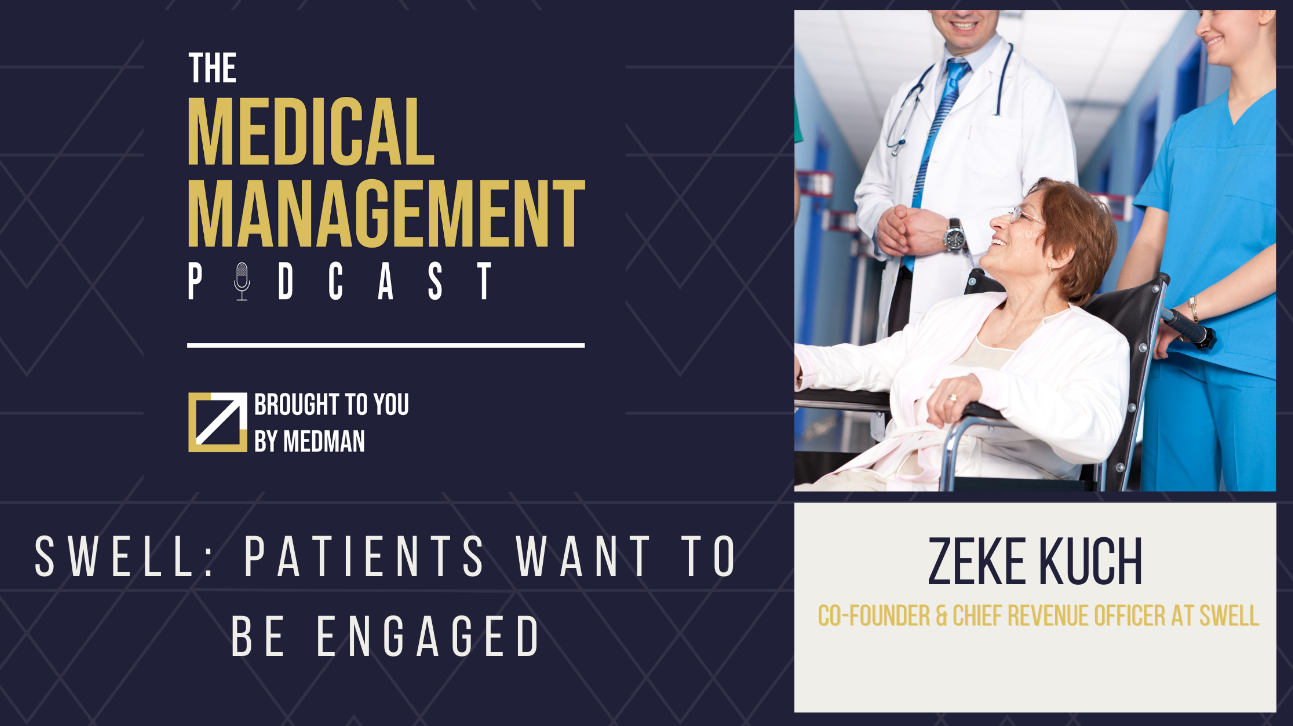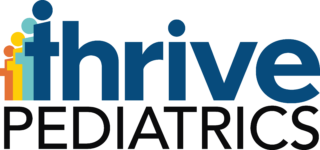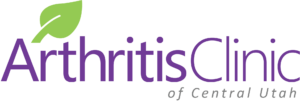
The Medical Management Podcast_Swell. Patients Want to be Engaged: Audio automatically transcribed by Sonix
The Medical Management Podcast_Swell. Patients Want to be Engaged: this mp3 audio file was automatically transcribed by Sonix with the best speech-to-text algorithms. This transcript may contain errors.
Jay Holmes:
Welcome to the Medical Management Podcast. A podcast focused on helping you level up your practice. Through interviews with some of the most successful leaders in the industry, we help uncover resources, tools, and ideas to help you level up your practice. Thanks for tuning in and we hope you enjoy today's program.
Jesse Arnoldson:
Hello and welcome to the Medical Management Podcast. Excited to be back. I'm your host, Jesse Arnoldson, and I am returning with Zeke Kuch of Salt Lake City, Utah. Welcome back, Zeke!
Zeke Kuch:
Thanks, Jesse. Glad to be back.
Jesse Arnoldson:
Yeah, we talked in our last episode, Zech, about your company Swell and its efforts to help medical practices and dental practices engage with their patients. You spent a lot of time on reviews, but I know that there's a whole lot more to your service package into your company than simply reviews. Even, reviews would be enough, but there's a whole lot more exciting stuff to talk about. So I wanted to give you a chance to tell us a little bit more about, Swell, why you Utah? Tell me a little bit about why you guys decided to create your company there in Salt Lake.
Zeke Kuch:
Yeah, I mean, I'm a transplant to Utah. My partner is from Linden, Utah, which is south of Salt Lake, by maybe forty-five minutes or so, I myself am from Southern California, so just north of L.A. But I was actually working out here in Utah with another software company when it pulled me from the West Coast here. And that's where I met my partner here in what they call the Silicon Slopes.
Jesse Arnoldson:
I like that!
Zeke Kuch:
The reality is, in Utah, over the last 10 years or so, it's really created this really cool ecosystem of startups. So it's I think Salt Lake is still the fastest-growing kind of venture hotspot in the country, specifically when it comes to software and software as a service. And we just found that with the amount of interest and venture that's coming in the area is obviously bringing a ton of attention. We found that the business, the state itself is very business-friendly. And so unlike states like California, which, I love, California is my home. But it's not the most business-friendly place specifically for a startup. And there's obviously there's challenges there. And so we settled on starting Swell here in Utah, even though the name of the business is Swell, which comes from the California roots. But ultimately, yeah, that's how we ended up in Utah. Here in the Silicon Slopes, it's been really positive. There's a ton of universities being able to hire unbelievable talent from the four major universities here. And it's, it's been, it's been awesome.
Jesse Arnoldson:
That's fantastic. I love it. Zeke, you gave us an introduction to Swell last time. Why don't you to tell us a little bit more about what you mean by patient engagement, getting patients more engaged with your practice?
Zeke Kuch:
Yeah, that's a great question. So I know the last episode we talked a little bit about mainly the review side of things and how we help practices get more reviews, which helps them get better visibility and credibility and help them get chosen over the competitors down the street, let's say. But the reality is, is I think patient engagement is a pretty broad term. And historically, patient engagements primarily, you just meant appointment reminders and confirmations. And there's a lot more to patient engagement than that, in our opinion. So with Swell, we offer additional tools beyond the review generation and monitoring side. We believe that patient engagement includes engaging where patients actually spend most of their time, which is a lot of times on social media sites. So one of our main products that has been adopted and gets used tremendously by health care practices is our messenger platform. And really what that is, is it's a high-powered inbox that consolidates Facebook chats, Google messages, text messages, Web chats, and basically brings that all into one consolidated inbox. So there's a term out there you like, Omni Channel. It's an omnichannel inbox. It's bringing in all the places that your customers or patients might be spending their time on and allowing you now to see all that and one pane of glass and assign those conversations to other team members or respond back using templates or automation. But we're trying to, we're trying to meet the patients where they are and not just require them to pick up the phone and call the practice, which is the old school way of doing business.
Jesse Arnoldson:
I love it. I love it. It makes me think back to The Office, I don't know if you're a fan, but there's an episode where Ryan, the temp, has created a social media like Omni-social media thing called Wolff, where he hits the thing and it faxes and posts and tweets and all this kind of, sends a phone call and that's kind of brings it back. But yeah, it is the opposite. It brings it all into one inbox here at the clinic, right?
Zeke Kuch:
Yep, absolutely. That's spot on. That's exactly, that's a that's a good analogy there.
Jesse Arnoldson:
Love it. Good. Tell me what have been some different things that you have tried with Swell that maybe haven't worked, but you've learned more about how patients like to be engaged and what has that evolved into your current services?
Zeke Kuch:
Yeah, I mean, when we first started Swell, we thought that, like, engagement should be like immediately after an appointment. So a patient comes in, they have the treatment or their consultation, they leave and we're like, let's get them while they're hot, let's get them right after they leave the practice that's going to be most excited to engage. And we've, we've learned that that is not the case. And people come to the practice and they have the treatment or the consultation and leave, the last thing they want to be doing is still worrying about the practice. So what we find is that people want to get back to the day, right, they want to get back to, getting back to work, they want to go back to their kids, they want to get back to whatever it is they spend most of their days doing, and so we find that engaging immediately after the, after the appointment ended up not being a great thing. We found that engaging typically after standard working hours that people are drinking a cold one and watching the game, or that, that's the window that we find that people actually are more appreciative of, of some kind of engagement via text or email and data proves that we've seen open rates, and click-through rates, and engaging rates, and review rates all back up that premise. Definitely one of the things that we've learned and there is a, we've learned a lot. I'll be honest, there's some things that we've done in the past that we're like, hey, that probably wasn't the greatest idea, or we've let practices use Swell in ways that we're like, I don't know if that's a great idea and it's not, ended up being so great for them.
Jesse Arnoldson:
Yeah.
Zeke Kuch:
But there are one of them is a great example of this. And this is probably opening up a can of worms. But we have in the past worked with a very few amount of cannabis companies that were using Swell for like reviews and engagement, and things like that. And I honestly don't know much about the industry personally. So I'm not, I'm not an expert in the cannabis world, so I can't speak about the FTC laws and things like that. But it turns out that you can't solicit or even include anything related to cannabis in text messages. So any time a BTC text messages it basically violates FTC requirements. And so we ended up getting a notification saying like, hey, you guys because they're being sent from our system, that we're violating these laws. And like, oh, no!
Jesse Arnoldson:
Oh no, that's terrifying!
Zeke Kuch:
Yeah, we were like looking into it right away, like, oh, no, you have to hire an attorney, look into this, send it to me, it turns out it wasn't as big of a deep thought, but we didn't know. Lesson learned. Probably not the greatest thing for us.
Jesse Arnoldson:
Yeah. Yeah. That leads to another question. How did you decide to maybe trim down and just focus on healthcare-related companies?
Zeke Kuch:
Yeah, is risky, it's actually a really good question.
Jesse Arnoldson:
It was because you've got lawyers coming after you on the other.
Zeke Kuch:
No, it's a, yeah, we know, we actually, when we started the company about five years ago, we said, OK, we're not just going to be everything to everybody. We're not just going to build a platform that we think we can sell to every type of business. We thought, hey, we want to be the best at what we do. And that means we want to have the best integrations, meaning that we need to know the landscape of the environment we're in. So we decided, OK, we'll start in health care and in health care, where do we start? Well, to be honest with you, we started in pharmacy. My partner Drew, his background is actually in the pharmacy space and he had some good insight there. We thought that was going to be this industry that took off the fastest. And honestly, it was terrible. We had a really hard time trying to pitch this idea to pharmacists, specifically what we consider like independent pharmacies that we're trying to compete against Walgreens and CVS and all the big-box players. That was our first pitch in the health care space was specifically pharmacy, the pharmacy space. And it didn't go well, honestly. It was slow. We were like, hey, what's going on here? And we kind of fell backwards into dental. We ended up landing a couple of dental practices early on. And next thing we know, we just have dental practices calling us directly. So we're working, we're working basically out of our garage or basements at this point. And all of a sudden the phone started ringing and then a couple of months go by, and next thing we know, I'm all sudden from knowing nothing in the dental space, probably being able to execute a tooth extraction at that point because we quickly adopted so many dentists in such a short period of time, we ended up spending about two years just developing the dental space. And then from there, it opened up additional verticals. And now obviously we're serving dozens of different sub-verticals in the health care space. But yeah, we honestly just kind of picked one, tried it and fell backwards in another and that one took off, and then as we kind of continue to grow and evolve, we learn the ins and outs of, kind of the nuances that take place in between these, you know, these specialty dental verticals, which are very different from pediatrics, to dental, to cosmetic surgery, to ophthalmology. They all operate very differently and they all use different technologies as EHR platforms. So it's been really interesting, but also really fun and educational from my perspective.
Jesse Arnoldson:
I love it. I love it. If the company, if the current state of the company was the same as how you started, I'd probably be a little bit more worried, that, it's to see a learning organization.
Zeke Kuch:
Yeah.
Jesse Arnoldson:
Tell me what makes you guys different than, let's say, a normal, I would say one of the more traditional paths for a medical practice to solicit reviews is a tack it on to the end of a patient satisfaction survey. Why are you guys different and how do you accomplish, because a lot of practices are required to have a patient satisfaction survey still go out to at least some patients, why are you different from a more of a patient sat survey-focused company? What makes it different?
Zeke Kuch:
Yeah, I mean, it's funny because we actually offer the same solutions, so we offer private feedback, MPS, patient surveys through our platform, I mean, that's something that we do, and we have a lot of practices that leverage that specific toolbox which is included in our in our subscription, but where we're a little bit different in our methodology here is that it goes back to the theme of the last conversation or last episode around convenience. You're going to ask somebody to do something specifically a patient to give you feedback. You've got to make it as convenient as possible for them to do that. So everything that we do is typically text first. We find that people engage with text primarily in a quicker response than e-mail. Open rates are significantly higher via text message. And so the first thing is we're a text-based organization. We offer email, but we definitely lead with text. The second is we know that there is such a thing as feedback fatigue or survey fatigue.
Jesse Arnoldson:
Right.
Zeke Kuch:
And if you're like me and you get a survey and you're like, hey, take the survey and get 50 bucks at the end, you're like, OK, great. And then you're like 15 minutes into a survey and then realize that gas is not worth fifty dollars and then you exit and at the end of the day they don't get the rest of their answers, you don't give your 50 bucks and no one wins. It's.
Jesse Arnoldson:
Yeah.
Zeke Kuch:
Kind of, like we.
Jesse Arnoldson:
Yeah.
Zeke Kuch:
We just don't think that that's a great, great representation of the customer experience. And so our approach was, one, we're not big fans of tacking on like a review solicitation after a survey because people already have survey fatigue. And it's unlikely for someone to leave all their feedback through this really in-depth survey. And then also be like, OK, now I'm going to do the same thing again on Google or Facebook or Healthgrades or whatever the review site is. It's just not a great experience and no one wants to do that. And so we like to break those up and that can be broken up in many ways. It might be like the day of the appointment. They might get a review and by and then a week later, they might get the survey or vice versa. Or maybe it's this appointment type sends out surveys and this appointment type sends out review requests. There's a million different ways you can kind of use our solution specifically to trigger off whether it's a public survey, which is AKA an online review, or a private survey. And that's, that's really, really what it comes down to is if you break it up, it'll seem like a lot less work to your patients than trying to string it along with, hey, you're almost done, now you got to leave us a review on Google, which is I'm sure you've looked at this before. You've been in space for a long time. It doesn't yield great results, unfortunately.
Jesse Arnoldson:
It doesn't, you can watch it almost like a funnel. And you start with a hundred people. And by the time you get through the amount of people that are willing to start the survey, finished the survey, yes, leave a review, actually go and do it dwindles down to one percent or less. It's so painful to watch that. And, you know, you're giving a good experience and you know, your patients want to. But it's absolutely understandable, when I'm on the other side of it and I'm clicking through my eighteenth question, I'm done. You know, even if it's fifty dollars for a fifteen-minute survey, like minute fourteen, I abandoned it. I'm like, I'm out. I can't take it anymore. And so I get it.
Zeke Kuch:
At that point, how real and authentic are those responses anyway, right? Now they're just trying to get through the survey. Are you actually getting valuable data or people just clicking button so they can get their reward or just get, with the survey over with, right?
Jesse Arnoldson:
Yeah. So even those that finish, you've tainted your, your actual responses.
Zeke Kuch:
I would think so. I mean, I'm one of those people, the survey's too long or it takes me too many clicks, I'm probably either out or I'm just clicking buttons at that point.
Jesse Arnoldson:
Yeah, yeah, absolutely. Zeke, anything else that you'd like to tell us just as we're closing here about Swell and your value add to a medical or dental practice?
Zeke Kuch:
Yeah, I mean, thanks for giving me the opportunity, Jesse. At the end of the day, we are all about really two things, it's helping acquire patients and it's helping retain patients. Those are the two things that we do really well. We do that by modernizing the way that these practices are engaging, whether it's engaging through Google reviews or Facebook reviews or what it might be, all the way to the point of something, even requesting an appointment or asking a question through our Webchat or some other social media communication tool like Google messaging, for example, we're all about making sure that practices are modernizing and staying current with the expectations of today's consumer. And so we offer tools that offer review generation to help build credibility, build brand awareness, build searchability online, tools like Web chat, which I am shocked today at how many practices don't leverage some type of form for a website visitor to start a conversation.
Jesse Arnoldson:
Right.
Zeke Kuch:
I mean, at that level we're, we're, it's 2021, we're coming up, we're post-covid, I wouldn't say post-covid now because apparently, we're still in the thick of it.
Jesse Arnoldson:
I know.
Zeke Kuch:
But the reality is, the reality is, is that practices at some point have to find a way to modernize this. The expectation is if you hit a website, you can communicate with somebody without having to dial a phone number. And we want to provide those simple tools which are really easy to implement, really easy to manage. They don't take a lot of bandwidth to stand up. They definitely don't take a lot of bandwidth to manage on the backend from a user perspective. But it's just these little things that are going to be the difference-maker for practices that are trying to stay relevant versus those that are going to end up getting left in the dust, and this applies to both independent single location practices, all the way up to the multi-location health care systems. They're going to have to find a way to adapt to today's consumer expectations.
Jesse Arnoldson:
Absolutely. Zeke, thank you for being on. I absolutely appreciate your insight and all the interesting, unique things that Swell does. It's exciting to, like I told you on the break, it's exciting to talk about success in this area because for so long, myself and other administrators and doctors have tried our hardest to engage patients in reviews. And I've never had a really big win in this area until we partnered up with Swell. Kudos to you guys.
Zeke Kuch:
Thanks, Jesse. Well, I'm thrilled to be on here with you, a big fan of the podcast. And if there's there's anything we can do to help you and your listeners, we would love the opportunity to do that.
Jesse Arnoldson:
Absolutely. And remind me again one more time. The website for Swell is?
Zeke Kuch:
Yeah, SwellCX.com. So Swell just as it sounds S W E L L, C and Charlie, X is an X-ray.com.
Jesse Arnoldson:
Perfect. And for a link to Swell's website and also to MedMan's check out the show notes, and for anything else that Swell and MedMan does. Zeke, thanks for coming on, everybody else, thank you, and we'll see you next time.
Zeke Kuch:
Thanks, Jesse.
Jay Holmes:
Thanks for tuning in to the Medical Management Podcast. We hope you enjoyed today's featured guest. For the show notes, transcripts, resources, and everything else MedMan does to help you level up, be sure to visit us at MedMan.com.
Sonix is the world’s most advanced automated transcription, translation, and subtitling platform. Fast, accurate, and affordable.
Automatically convert your mp3 files to text (txt file), Microsoft Word (docx file), and SubRip Subtitle (srt file) in minutes.
Sonix has many features that you'd love including transcribe multiple languages, enterprise-grade admin tools, collaboration tools, automated translation, and easily transcribe your Zoom meetings. Try Sonix for free today.
Episode Summary
Our last episode’s guest, Zeke Kuch, is back to give us a quick overview of Swell.
Swell is a startup that was born in Utah, and they have been rapidly growing. Zeke talks about the company’s mission and its work in patient engagement. They offer review generation, tracking services, and a messaging platform that unifies Facebook, Google messages, text messages, and others in one single place. Swell also offers text messaging and email solutions, even though they lead with texts.
Tune into this episode to learn about Swell’s experience as a startup!
Today’s Guest – Zeke Kuch
Zeke Kuch is the Co-Founder and President of Swell, a growth platform for local businesses.
Zeke grew up in Southern California and now resides in Salt Lake City, where Swell Headquarters reside. Zeke is married to his wife Rachel, whom he met at a Dodgers game 9 years ago, and has a 3-year-old son and 4-month-old daughter. He also has a 3-year-old Australian Shepherd named Banjo. He has an extensive background in Software Sales and Growth Strategies.
Key Take-Aways
-
Salt Lake City is the fastest-growing venture hotspot in the United States.
-
Historically, patient engagement meant appointment reminders and confirmations, but that has changed through the years.
-
Text messaging has a higher proven rate of effectiveness than e-mails.
-
Breaking up surveys will help the customers do them.
Resources








